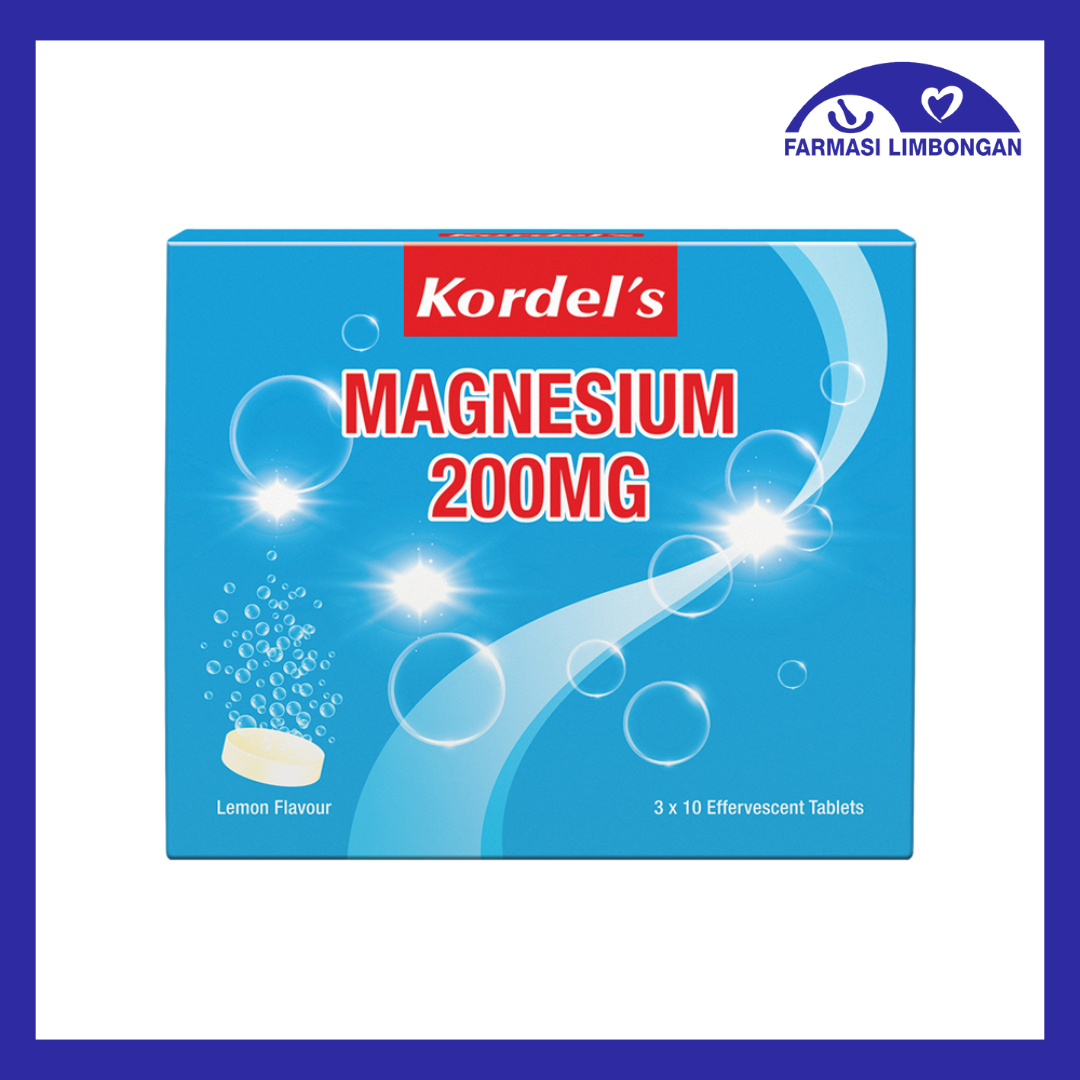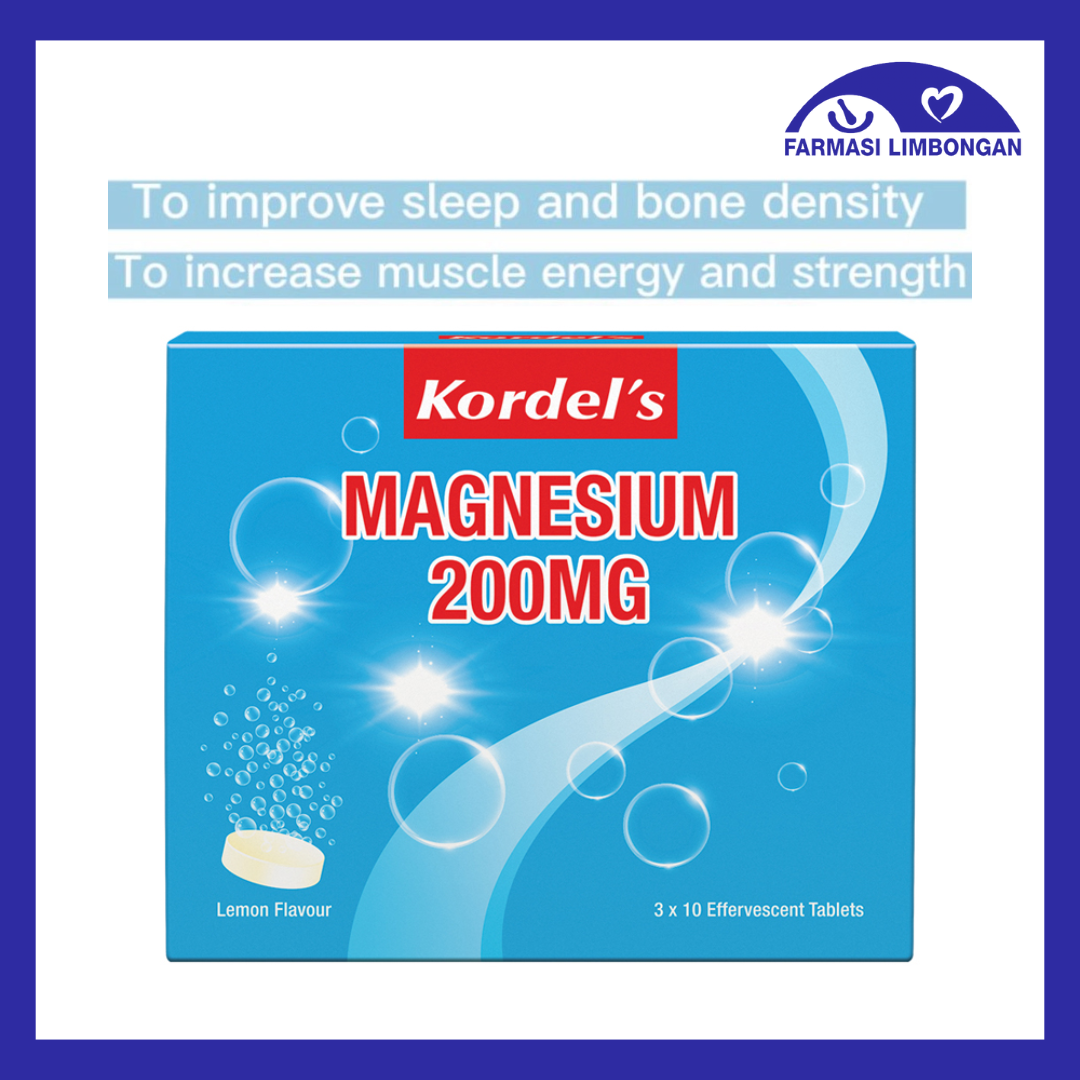KORDEL’S MAGNESIUM 200MG EFFERVESCENT TAB (3×10’S)
RM46.76
Out of stock
KORDEL’S MAGNESIUM 200MG EFFERVESCENT TAB (3×10’S)
Why Magnesium is important to our body?
Magnesium is a FUEL for our busy body. It is needed for aerobic (= with oxygen) and anaerobic (= without oxygen) energy production. Magnesium fuels over 600 processes in the body.
Magnesium supports many physiological processes, including ACTIVE ONES like muscle contraction and more CALMING ONES like relaxation and sleep.nesiu
Magnesium supports a healthy heart, skeletal system and inflammatory response, as well as steady blood pressure, blood sugar and energy levels.m f
Possible Symptoms of Sub-Optimal Magnesium Intake
Muscle cramps, twitches or tremors
Regular or excessive fatigue
Feelings of irritability and/or lethargy
Frequent mood swings, including depression
Pre-menstrual bloating
Restless legs at night
There are three main organs that stored high magnesium, which are brain, bone and muscle.
How does Magnesium work in the brain?
Activates Serotonin to induce satisfaction and regulate attention.
Activates GABA to improve mood and sleep.
Reduces Cortisol to reduce stress and excitation.
Magnesium In The Bones
Magnesium is required for the production and release of parathyroid hormone. The parathyroid hormone produced by the thyroid glands helps maintain the right balance of calcium in the bloodstream and in tissues that depend on calcium for proper functioning. This is especially important for nerve and muscle function, as well as bone health. Magnesium converts vitamin D into its active form so that it can help calcium absorption.
Magnesium – the unknown nutrient for muscle and strength
Much of the body’s energy comes from ATP, a molecule that captures chemical energy from food and uses it to fuel other processes in the body.
ATP production depends on magnesium The synthesis of ATP requires magnesium-dependent enzymes called ‘ATPases’. Magnesium acts as a cofactor in energy metabolism.
Mg is present as the Mg2+ ion, which can bind with ATP to form the Mg-ATP complex to be bioactive.
Why Athletes needs more Magnesium !
Magnesium Supports Energy
The researchers assessed 10 postmenopausal women (45-71yo) during a cycling exercise in relation to the amount of dietary magnesium that they were consuming.
35 d: Magnesium deficient diet 112mg + 200mg Mg supp.
93 d: Magnesium deficient diet 112mg/ day
49 d: Magnesium deficient diet 112mg + 200mg Mg supp.
The results showed that women who had low magnesium levels had higher oxygen use and higher heart rates during the cycling exercise. This suggests that these women were working harder and over time they will be more lethargic.
Magnesium Boosts Muscle Strength
A Research reveals that having adequate magnesium levels can improve strength and power In athletes. A four-year analysis by a team at the University of East Anglia found that a greater dietary intake of magnesium improved muscle strength, muscle mass and bone mineral density in men and women In OLDER AGE GROUPS.


